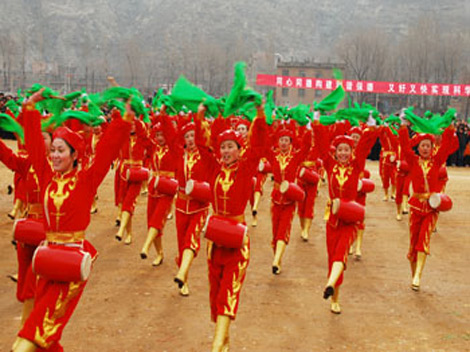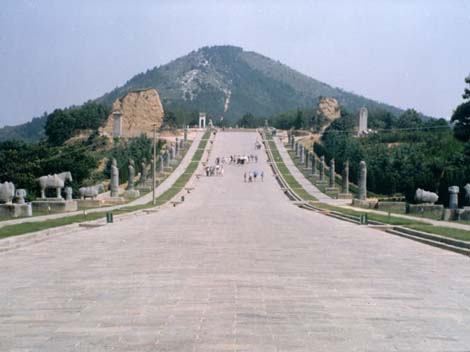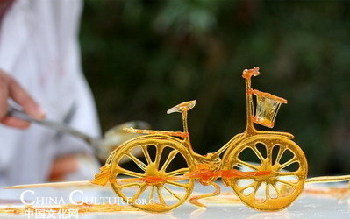| Home > China Feature |
The Reign of Emperors Wen and Jing of the Western Han Dynasty
During the 40 years of the reign of Emperors Wen and Jing of the Western Han Dynasty, China ushered in a flourishing stage of development with social stability and economic booming. Therefore, this period is referred to as "Peace and Prosperity during the Reign of Emperors Wen and Jing of the Western Han Dynasty".
Emperor Wen of Han (202B.C.-157B.C.), namely Liu Heng, was the fourth son of Emperor Gaozu (Liu Bang) of Han. He acceded to the throne in 180B.C. and was in power for 23 years. Emperor Jing (188B.C.-141B.C.), son of Emperor Wen was enthroned in 157B.C. and his reign lasted for 16 years.
At the beginning of the Han Dynasty, Emperor Gaozu as well as his successors endeavored to speed the recovery of agricultural production and bring prosperity to the people. When Emperors Wen and Jing were in power, they continued to encourage agricultural output as well as economic development through various political measures.
During the reign of Emperors Wen and Jing, agricultural production was taken as priority for development. During his reign, Emperor Wen promulgated numerous rules and regulations to encourage the agricultural production and sharply reduced labor corvée as well as lowered taxes on peasants. Besides carrying forward the agricultural policy of Emperor Wen, Emperor Jing also made significant contribution to the irrigation works so as to boost agriculture.
Both Emperor Wen and Emperor Jing exerted themselves to abolish harsh laws and enact more humane policies. Emperor Wen staged a revolution against cruel criminal laws passed down since the Qin Dynasty (221B.C. -206B.C.). He also abolished lifetime labor corvée as well as clan extinction and replaced four harsh penalties with whipping which was further mitigated by Emperor Jing. All these policies played a crucial role in social stabilization and development of economy.
Instead of launching wars on minorities, both Emperors Wen and Jing endeavored to maintain peaceful coexistence with neighbors therefore the country was untroubled by wars except the rebellion of seven princedoms in 154 due to Emperor Jing's improper handling of the issue of princedoms.
Following the reigns of Emperor Gaozu and Emperor Wu, the reign of Emperors Wen and Jing laid a solid material basis for the prosperity and social well-being of the Han Dynasty. It is viewed as the prelude of the Western Han Dynasty, one of the most flourishing ages in Chinese history.
Art
 more
moreYicheng Hua Gu
The Flower Drum 花鼓 of southern Shanxi Province is a kind of folk d...

Sculpture in Qianling Mausoleum
The sculpture of Qianling Mausoleum is the main relic of the ground ...

A Sweet Art:Sugar Painting
In and around China’s southwestern Sichuan Province, it is usual to ...

Custom
 more
moreWeb Dictionary
Martial Arts
Wudang Martial Arts
Wudang Wushu is one of the key schools of Chinese martial arts. ...
Wuxia, a Popular Culture for Most Chinese-Speaki...
Wuxia (武侠) is a broad genre of Chinese fiction that concerns its...
“Chinese Kung Fu Hot”
“Part the Wild Horse’s Maneton Both Sides”, “White Crane Spreads Its...





 print
print  email
email  Favorite
Favorite  Transtlate
Transtlate 







